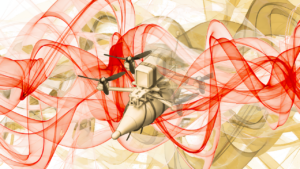The recent elections in the Kurdistan region of Iraq were different than those held previously because they marked the emergence of a new contending political party [“Top Kurdish Parties Face Poll Challenge,” by Gina Chon, Wall Street Journal, 23 July 2009]. According to Chon, more than 500 candidates from 24 parties or alliances vied for seats in the Kurdish Regional Government’s 111-member parliament. The ruling coalition, which consists of the Patriotic Union of Kurdistan (PUK) and the Kurdistan Democratic Party (KDP), won the election as expected; but the Gorran party, whose name means “change,” came in a respectable second to the ruling coalition with 24 percent of the votes for seats in Parliament [“Kurdistan Contradicts Itself,” by Benjamin Hall, New York Times, 30 July 2009]. Hall is a blogger who was in the Kurdistan region during the elections. He noted that, for the most part, the elections were non-violent and voters in the region had some honest choices to make. He concluded his op-ed piece this way:
“Just the other night I saw a Gorran supporter pulled from a car and dragged away, but I also saw people drinking tea in the streetside cafes as they watched the protests die down. The violence consisted of little more than a few thrown water bottles. A few years ago, something like this would have certainly led to widespread unrest. Thus it can be seen as a victory of sorts that most Kurds seem to be at home with their families, grumbling perhaps, but more occupied with watching mindless TV than with politics. Among their favorites are ‘Gardalul,’ a campy series about valiant Kurdish militia fighters, and ‘Kurdstar,’ a version of ‘American Idol’ limited to only one genre of music: traditional Kurdish folk songs. While the contestants may not have a real choice, it appears that Iraqi Kurdish voters finally do.”
Another big question coming out of the elections is what do the results mean for the future of Iraq as a whole? As I noted in a previous post entitled Kurd-Arab Tensions Raise Concerns and Debate, confrontations between Kurds and Arabs were easing them towards conflict rather than reconciliation. Daniel Williams agrees that the situation remains tense [“Iraqi Kurd Ruling Parties Claim Victory in Regional Elections,” Bloomberg.com, 26 July 2009]. He writes:
“The Kurds and the central government, led by Prime Minister Nuri al-Maliki, are at loggerheads over the final borders of the Kurds’ self-rule region. The Kurds want to annex parts of four provinces to the south they say make up part of their traditional homeland. The claim includes a section of Kirkuk province, the oil hub of Iraq’s north. The KDP and PUK have settled thousands of compatriots in the Kirkuk area who they say were expelled by Saddam Hussein. [The Garran Party] also supports Kurdish rule over the disputed land. Inability to resolve Kurdish-Iraqi territorial issues threatens a smooth exit of American forces from Iraq, scheduled to be completed by the end of 2011. About 3,200 PUK-KDP armed militia members face 12,000 Iraqi troops along a winding, undemarcated frontier in the Kirkuk area that U.S. military officials call the trigger line. The dispute is ‘one of the most dangerous issues that have been a concern for all the Iraqi government,’ al-Maliki said on July 23 during a visit to Washington. ‘I am confident that we will be able to resolve’ this and other issues.”
To follow through on his promises, al-Maliki traveled to the Kurdish region to meet with Massoud Barzani, who was re-elected as President of the Kurdistan Regional Government. It was their first meeting in a year [“Iraqi and Kurdish Leaders Pledge to End Disputes,” by Nada Bakri, Washington Post, 3 August 2009]. The meeting apparently went well.
“In the first such meeting in a year between the two rivals, Iraqi Prime Minister Nouri al-Maliki and Kurdish President Massoud Barzani pledged … to resolve disputes over land and oil that have threatened to spill into fighting. The conflict between the Iraqi government and the Kurdish autonomous region is seen as the most dangerous threat to the nation’s stability, and U.S. officials have publicly urged both sides to resolve their disputes before most American combat troops complete their withdrawal from Iraq by August 2010. ‘The challenges that face the political process require more meetings and cooperation between all Iraqi people,’ Maliki said … at a news conference with Barzani and Iraqi President Jalal Talabani, also a Kurd. ‘I am very optimistic after this meeting.’ Barzani said a Kurdish delegation would visit Baghdad ‘to solve all the problems.'”
No one believes that the prickly issues that have been plaguing Kurd/Arab relations are going to be settled easily. A lot of wrangling among the parties will take place because the issues involve historical injustices, oil revenues, and revanchist claims. One Arab lawmaker criticized al-Malaki for traveling to the Kurdish region rather than insisting that President Barzani travel to Baghdad. The lawmaker believed that “the trip represented a sign of weakness, hampering the government’s negotiating stance.” On the other hand, al-Maliki’s willingness to make the visit demonstrated an increasing confidence in his own political situation. Most Arabs, however, seemed to welcome the meeting and the pledges of cooperation that emerged from it. The fact that Prime Minister al-Malaki was able to swallow his pride for the good of his country made it much easier for President Barzani to agree to make a follow-up trip to Baghdad. If this spirit of cooperation continues, it could create a win-win situation in Iraq. As I noted in the above mentioned post, companies will only be eager to do business in Iraq if the security situation remains stable. A negotiated settlement of outstanding disputes would prevent the deflection of scarce resources into non-productive military activities. The future of Iraq depends on its political leaders being able to instill hope within a population that has seen too much death and destruction. The meeting between Prime Minister al-Malaki and President Barzani is a good start.




